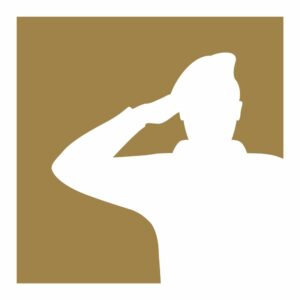
Copyright © 2023
Friends of the Israel Defense Forces
p: (212) 244-3118 f: (212) 244-3119 PO Box 4224 NY, NY 10163 USA
Friends of the Israel Defense Forces is a 501(c)(3) not-for-profit organization
Anny Yanowicz z”l was one of the pioneers of Friends of Israel Defense Forces, involved from the very beginning when FIDF was only a dream. We recently caught up with her daughter, Livia Yanowicz, who shared memories and insights into her dynamic mother’s role in helping to make the Jewish homeland a reality, and in building our organization which cares for soldiers like her.
Why was Anny so passionate about supporting the IDF?
Before the establishment of the State of Israel in 1948, my mother was a member of the underground paramilitary organization for protecting the Jewish population of Palestine, known as the Haganah. At the time, little did people know that this young, charming, flirtatious, French-speaking woman was helping to smuggle weapons from Egypt into Palestine. After the Israel Defense Forces was formed, my mother stayed on and became one of the first seven women officers of the IDF. She was married while serving, which was not typical of women in service. During the War of Independence, she was severely injured in the bombing of the Red House headquarters where others died. Her wounds were debilitating for the rest of her life, but she hid them from me as a child. She’d casually ask me to help her zip up her dress, but for the longest time I never knew it was because her wrist would not function properly. She was a gracious, amazingly strong woman.
After moving to the U.S., did she speak much about her time in the service?
Yes, on occasion. Years later, I remember witnessing a fascinating conversation upon arriving with my mother at my aunt’s home for a shiva. Sitting around the room were several of my mother’s old friends, all well-dressed like my mother in stylish furs and hats, like East Side ladies, elegantly sipping tea or coffee — and, by contrast, chatting casually about the old days during the ’47/’48 War, dodging exploding bombs and hailing gunfire, driving trucks through enemy lines, loading ambulances, climbing across obstacles through the mud, fending off attacks on settlements, and so on. Incredible. One of the women wearing a jaunty fur hat chatting with the others was an administrative officer for the tank corps. My mother herself was the commander of the girls’ training camp, Bahad 12, in which I, myself, got basic training.
What do you recall about her participation in the early days of the FIDF?
When it started, the organization’s name was an awkward translation from Hebrew, which was ‘The American Friends of the Association for Welfare of Soldiers in Israel.’ We lived in New York and I remember that, under the supervision of the Executive Director at the time, she was the driving force behind three things — one was the annual fundraising dinner, one was the fundraising auction that she ran with her sister Judy, and the other was the program to bring wounded soldiers from Israel to the U.S. for advanced medical care. And those were the only three things that I am aware of that the organization did. I remember, actually, she and my father Paul hosting a blind soldier, and my mother also organized families that would take the soldiers in while they were being treated and the like. And then everything took root and, with lots of hard work by many people, the organization has grown to what it has become today.
How do you think your mom would like to be remembered?
I think that she would want to be remembered as someone who significantly contributed to the IDF. That she contributed personally by being in the Haganah and by helping found the State of Israel. And then later she continued that devotion and activity by helping soldiers who were doing what she once did — through the organization that grew into today’s FIDF. That’s part of her legacy.

Copyright © 2023
Friends of the Israel Defense Forces
p: (212) 244-3118 f: (212) 244-3119 PO Box 4224 NY, NY 10163 USA
Friends of the Israel Defense Forces is a 501(c)(3) not-for-profit organization